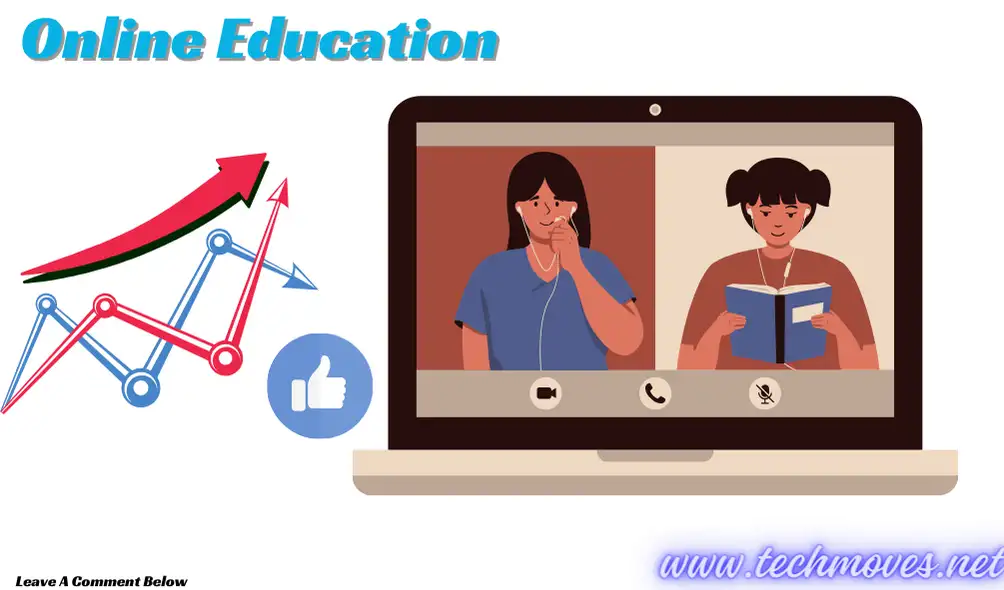Introduction to Online Education

Definition and evolution
- Popularity and growth
- Advantages of Online Education
Flexibility and convenience
- Cost-effectiveness
- Diversity of courses
- Challenges of Online Learning
Technical issues
- Lack of face-to-face interaction
- Self-discipline
- Choosing the Right Online Course
Researching accredited programs
- Reading reviews and testimonials
- Consideration of personal goals
- The Role of Technology in Online Education
Innovative learning platforms
- Interactive tools and resources
- Impact of Online Education on Traditional Learning
Blended learning approaches
- The changing dynamics of classroom education
- Tips for Success in Online Courses
Effective time management
- Active participation in discussions
- Building a study routine
- Online Education and Career Advancement
Skill development opportunities
- Recognition in the job market
- Future Trends in Online Education
Integration of virtual reality
- Personalized learning experiences
- Overcoming the Stigma of Online Degrees
Addressing misconceptions
- Highlighting achievements and skills
- Social Aspects of Online Learning
Building a virtual community
- Networking opportunities
- Government Initiatives Supporting Online Education
Financial aid programs
- Promotion of digital literacy
- Ensuring Online Education Quality
Accreditation standards
- Monitoring course content
- The Importance of Lifelong Learning
Adaptability in a changing world
- Continuous personal and professional growth

Online Education: Unlocking Opportunities in the Digital Learning Landscape
The educational landscape has undergone a significant transformation with the rise of online education. As the world becomes increasingly digital, the accessibility and flexibility of online learning have paved the way for a new era of education. In this article, we’ll explore the various facets of online education, from its advantages and challenges to its impact on traditional learning and future trends.
Introduction to Online Education
Definition and Evolution
Online education, also known as e-learning, involves the use of the Internet to access educational materials and interact with instructors. It has evolved from simple correspondence courses to sophisticated virtual classrooms, breaking down geographical barriers and making education accessible to a global audience.
Popularity and Growth
The popularity of online education has surged in recent years, driven by the need for flexibility and the advancement of digital technologies. The convenience of learning from anywhere at any time has contributed to the rapid growth of online courses and degree programs.
Advantages of Online Education
Flexibility and Convenience
The range of options that the Internet offers is one of its biggest advantages. Learners can schedule their study sessions around work or family commitments, making education accessible to those who might not pursue traditional on-campus programs.
Cost-effectiveness
Online courses often come with lower tuition fees and eliminate additional expenses such as commuting and housing. This cost-effectiveness makes education more affordable and attractive to a broader range of learners.
Diversity of Courses
Online platforms host a diverse array of courses, ranging from traditional academic subjects to specialized skills training. Learners can choose from a wide selection of programs that align with their interests and career goals.

Challenges of Online Learning
Technical Issues
While technology has facilitated online education, technical challenges such as internet connectivity issues and platform glitches can hinder the learning experience. Overcoming these hurdles requires technical literacy and troubleshooting skills.
Lack of Face-to-face Interaction
One of the drawbacks of online learning is the absence of face-to-face interaction with instructors and peers. Building relationships and engaging in real-time discussions can be challenging in a virtual environment.
Self-discipline
Successful online learning demands a high level of self-discipline. Without the structure of traditional classrooms, learners must manage their time effectively, stay motivated to complete assignments, and meet deadlines.
Choosing the Right Online Course
Researching Accredited Programs
To ensure the value of an online degree, it’s crucial to choose accredited programs. Researching the accreditation status of an institution ensures that the education provided meets recognized standards.
Reading Reviews and Testimonials
Reading reviews and testimonials from previous students can provide insights into the quality of the online course, the effectiveness of instructors, and the overall learning experience.
Consideration of Personal Goals
Before enrolling in an online course, individuals should consider their personal and career goals. Aligning the course content with these objectives ensures a meaningful and relevant learning experience.
The Role of Technology in Online Education
Innovative Learning Platforms
Technology has enabled the development of innovative learning platforms that incorporate multimedia elements, interactive simulations, and virtual laboratories. These tools enhance the learning experience and cater to different learning styles.
Interactive Tools and Resources
Online courses often utilize interactive tools such as discussion forums, quizzes, and collaborative projects. These resources foster engagement and allow learners to apply theoretical knowledge in practical scenarios.
Impact of Online Education on Traditional Learning
Blended Learning Approaches
The integration of online components in traditional classrooms has led to blended learning approaches. This combination allows for a more dynamic and interactive educational experience.
The changing dynamics of Classroom Education
As online education gains prominence, traditional institutions are adapting to changing dynamics. Classroom settings now incorporate technology, and educators are exploring innovative teaching methods to enhance learning outcomes.

Tips for Success in Online Courses
Effective Time Management
Successful online learners excel in time management. Creating a realistic study schedule, setting goals, and prioritizing tasks contribute to a productive learning experience.
Active Participation in Discussions
Engaging in online discussions and collaborating with peers fosters a sense of community. Active participation enhances understanding and allows learners to benefit from diverse perspectives.
Building a Study Routine
Establishing a consistent study routine helps maintain focus and discipline. A dedicated study space and a well-defined routine contribute to a conducive learning environment.
Online Education and Career Advancement
Skill Development Opportunities
Online courses provide opportunities for skill development in various fields. Acquiring new skills or enhancing existing ones can significantly contribute to career advancement and increased employability.
Recognition in the Job Market
Employers increasingly recognize the value of online education. Highlighting relevant online courses on resumes and LinkedIn profiles showcases a commitment to continuous learning and adaptability.
Future Trends in Online Education
Integration of Virtual Reality
The future of online education may involve the integration of virtual reality (VR) for immersive learning experiences. VR can simulate real-world scenarios, providing practical training in fields such as healthcare, engineering, and the arts.
Personalized Learning Experiences
Advancements in artificial intelligence may lead to more personalized learning experiences. Adaptive learning platforms can tailor course content to individual learning styles, maximizing understanding and retention.
Overcoming the Stigma of Online Degrees
Addressing Misconceptions
There are lingering misconceptions about the quality of online degrees. Institutions and learners can work together to address these misconceptions by highlighting the rigorous nature of online programs and showcasing successful graduates.
Highlighting Achievements and Skills
Maximizing Online Education: A Comprehensive Approach
Introduction
In the ever-evolving landscape of education, the paradigm shift towards online learning has become more pronounced, especially in response to global events such as the COVID-19 pandemic. At [Your Organization’s Name], we take pride in pioneering a transformative approach to online education, going beyond mere adaptation to champion a model that excels in delivering quality teaching and learning experiences.
Unraveling the Benefits of Online Education
Flexible Locations
One of the undeniable advantages of online education is the flexibility it offers. Learners can engage with their studies from any corner of the globe, transcending geographical constraints. Whether relocating to a different city or country, the virtual classroom remains accessible, ensuring a seamless learning journey.
Tailored Support for Individual Growth
In the realm of online classes, the intimate nature of smaller groups fosters more personalized interactions. This one-to-one connection with tutors becomes a cornerstone for addressing diverse learning styles and needs. At [Your Organization’s Name], we understand the importance of tailoring education to the individual, creating an environment where every learner thrives.
Access to a Cambridge Education Anywhere
Our commitment to accessibility is unwavering. Even if a physical Cambridge school is not within reach, our online platform ensures that learners can tap into our esteemed curriculum. This inclusivity is especially vital for those navigating a dynamic lifestyle, where relocation is frequent, without compromising the quality of education.
Medical and Wellbeing Support
Online education emerges as a lifeline for learners facing medical or well-being challenges that hinder physical attendance. Through our platform, we provide a supportive ecosystem, ensuring that every student can access education irrespective of their circumstances.
Expanding Horizons with a Wider Curriculum
Breaking away from the limitations of local curricula, online schools can offer a diverse range of subjects. This expanded curriculum opens doors to educational possibilities that might not be available in a traditional local school setting.
Nurturing Excellence in Online Teaching and Learning
Parity in Standards
While the mode of delivery may differ, our commitment to excellence remains unwavering. We expect online educators and school leaders to uphold the same teaching and learning standards as their traditional counterparts. This ensures a seamless transition and maintains the high-quality education synonymous with
Active Learning and Wellbeing
At the heart of our approach is a dedication to fostering active learning and prioritizing student wellbeing. Our online learning environment is designed to provide opportunities for both collaborative and individual work, creating a dynamic space where students can flourish academically and emotionally.

Guiding Principles for Effective Online Teaching
In response to the challenges presented by the pandemic, we outlined comprehensive guidance for utilizing online tools in remote teaching and learning. Emphasizing the primacy of pedagogy over technology, we underscore the importance of teacher expertise in navigating the digital realm. These principles, applicable in diverse contexts, ensure a holistic and effective online learning experience.
In a saturated digital landscape, it emerges as a beacon of innovation and excellence in online education. Our commitment to quality, coupled with a forward-thinking approach, positions us as the preferred choice for learners seeking a transformative online education experience.







